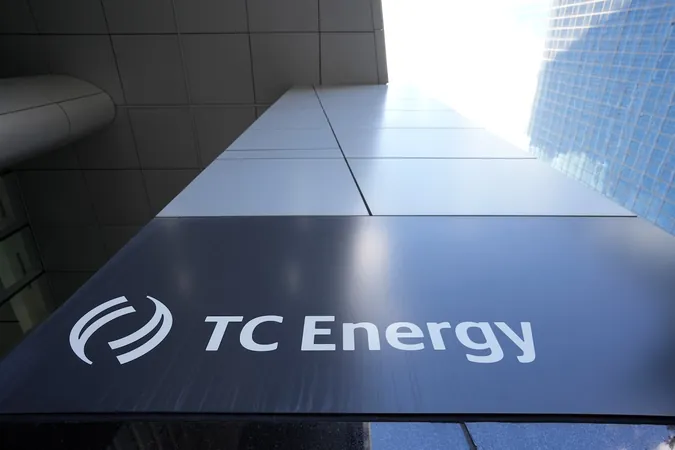
Nucala Treatment Revolutionizes Outcomes for EGPA Patients: Stunning Findings from Real-World Study!
2024-10-14
Author: Jacques
Introduction
In a groundbreaking long-term study from Japan, it has been revealed that the medication Nucala (mepolizumab) significantly improves the survival rates and reduces disease activity for individuals battling eosinophilic granulomatosis with polyangiitis (EGPA). This rare type of ANCA-associated vasculitis (AAV) can devastate lives, making these findings critical for patients and healthcare providers alike.
Study Overview
The study meticulously compared the outcomes of 37 EGPA patients treated with Nucala to 37 matched individuals who received standard care without the therapy. The conclusion? Nucala drastically reduces the reliance on traditional glucocorticoids, which, while effective, often come with severe and debilitating side effects when used long-term.
Research Publication
The research, published in the esteemed journal Frontiers of Immunology, underscores an urgent shift in how EGPA is managed. “Nucala may control disease activity and reduce required glucocorticoid doses, potentially improving long-term prognosis in patients with EGPA,” the researchers stated. For context, glucocorticoids are typically the go-to anti-inflammatory treatment for AAV, but their long-term use can lead to significant health issues like weight gain, osteoporosis, and increased vulnerability to infections.
About EGPA
EGPA is characterized by high levels of eosinophils—another type of immune cell—that congregate and form granulomas, leading to inflammation of small blood vessels. This results in multiple symptoms primarily affecting the lungs and gastrointestinal system, often resembling severe asthma before a diagnosis is established.
Mechanism of Nucala
Nucala operates by targeting and inhibiting IL-5, a molecule integral to eosinophil growth and activity. It is currently approved as an add-on treatment for certain EGPA patients across several regions, including the U.S. and the European Union, largely based on encouraging data from the Phase 3 MIRRA clinical trial.
MIRRA Clinical Trial Results
In MIRRA, patients receiving Nucala in conjunction with standard AAV treatments—glucocorticoids either alone or with immunosuppressants—showed higher rates of disease remission compared to those on placebo. However, it's important to note that those with severe manifestations were not included in the trial, necessitating investigations into how Nucala performs in real-world scenarios.
Insights from the Japanese Study
The Japanese study pooled data from participants in the Registry of Vasculitis Patients to Establish REAL-WORLD Evidence (REVEAL). The cohorts revealed intriguing trends: both groups had a median age of 60, with 50% women, and a history of the disease averaging 84 months. Remarkably, treatment with Nucala at a dosage of 300 mg, administered every four weeks, led to a median observation period of 26 months, during which both groups reported a median Birmingham Vasculitis Activity Score (BVAS) of zero—indicative of no active disease.
Comparative Outcomes
However, untreated patients showed significantly higher disease activity, reinforcing the crucial role of Nucala in managing EGPA. In terms of glucocorticoid use, the treated patients required lower doses and demonstrated a considerable reduction in the number of patients needing higher doses, showcasing the enhanced efficacy of Nucala.
Mortality Rate and Implications
Is this the dawn of a new era in managing EGPA? Absolutely! With the mortality rate at five years post-treatment showing 100% for Nucala patients versus 81.3% for those untreated, it’s clear that Nucala is not just a treatment; it’s a lifeline for many.
Concerns on Relapse Rates
But even with these promising results, the study also raised concerns regarding relapse rates. While MIRRA reported a reduction in relapses with Nucala, the Japanese study did not find significant differences between the treatment and control groups, pointing towards the complexity of managing this challenging condition.
Conclusion
In summary, the real-world implications of these findings cannot be overstated. The efficacy of Nucala is not just a scientific fact but a beacon of hope for those grappling with the debilitating consequences of EGPA. This study lays the groundwork for further research and redefines how this rare vasculitis might be managed globally. Stay tuned for more updates on this revolutionary treatment!









 Brasil (PT)
Brasil (PT)
 Canada (EN)
Canada (EN)
 Chile (ES)
Chile (ES)
 España (ES)
España (ES)
 France (FR)
France (FR)
 Hong Kong (EN)
Hong Kong (EN)
 Italia (IT)
Italia (IT)
 日本 (JA)
日本 (JA)
 Magyarország (HU)
Magyarország (HU)
 Norge (NO)
Norge (NO)
 Polska (PL)
Polska (PL)
 Schweiz (DE)
Schweiz (DE)
 Singapore (EN)
Singapore (EN)
 Sverige (SV)
Sverige (SV)
 Suomi (FI)
Suomi (FI)
 Türkiye (TR)
Türkiye (TR)